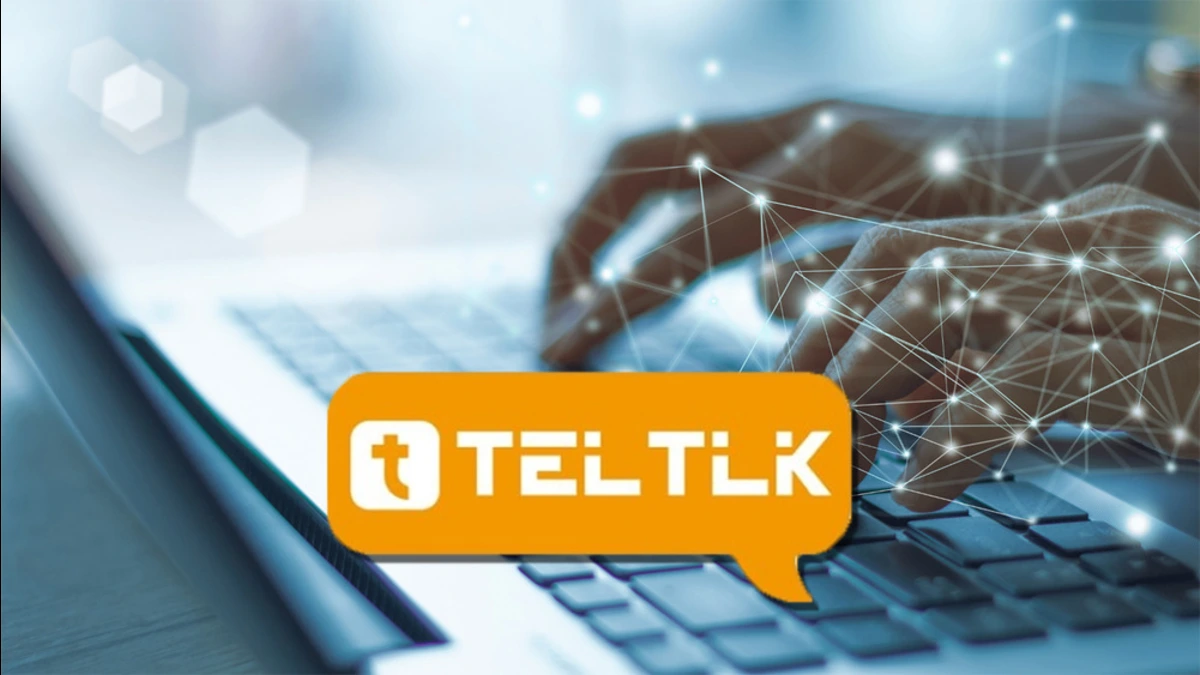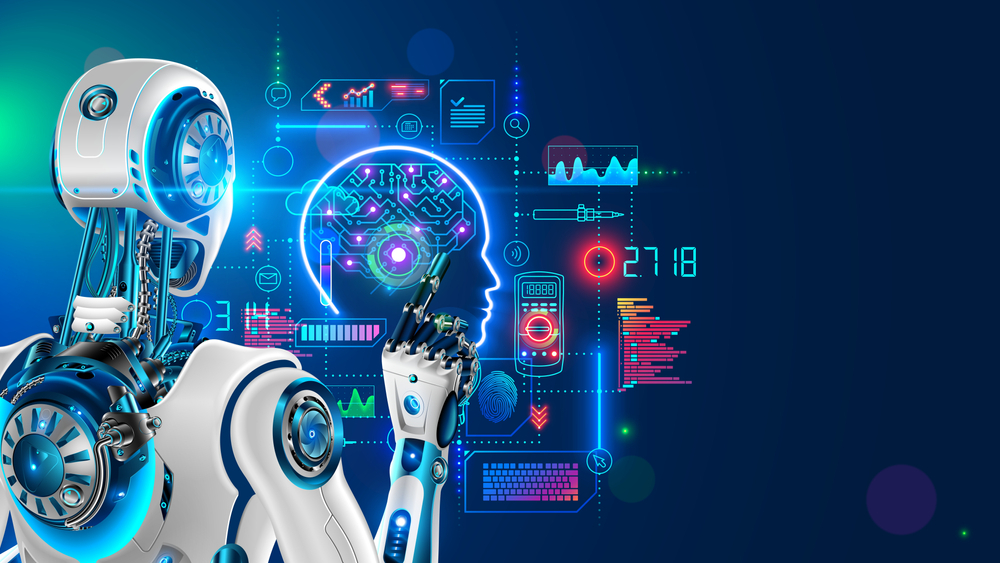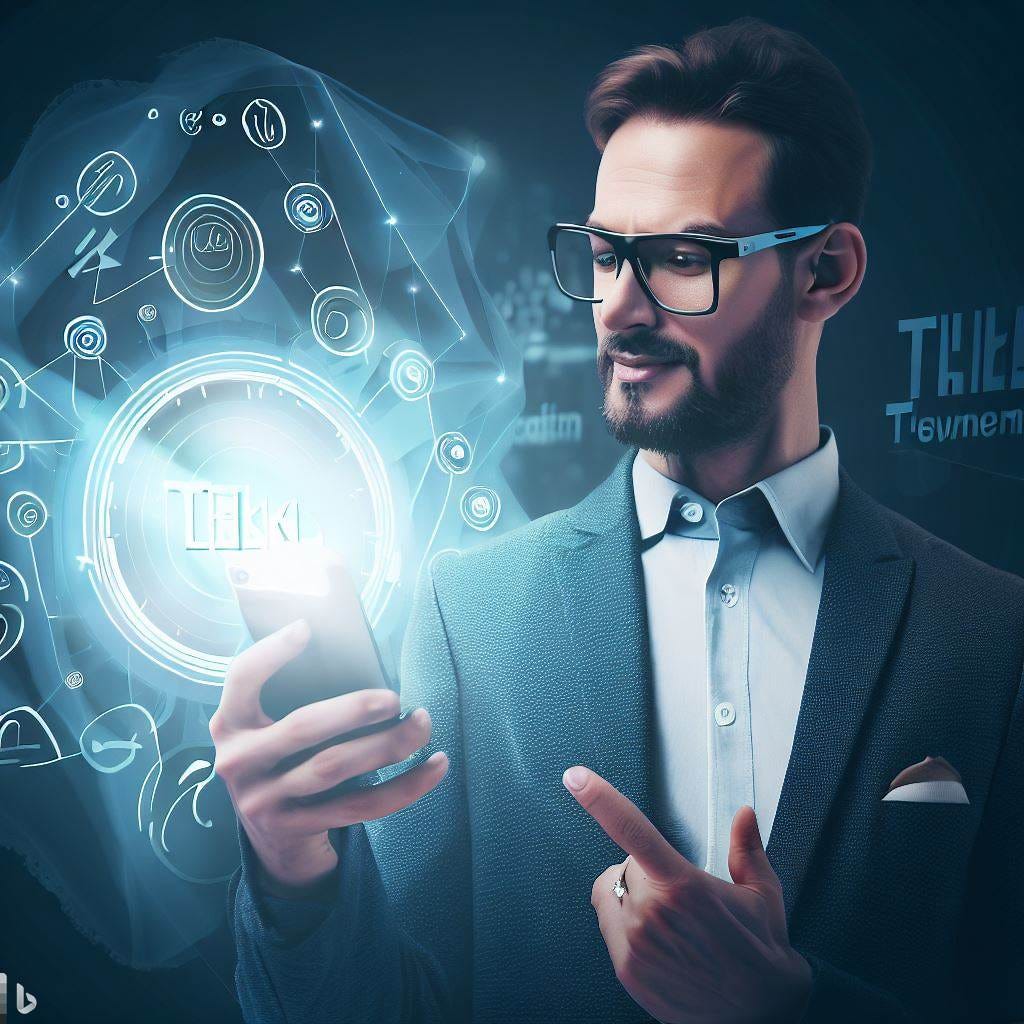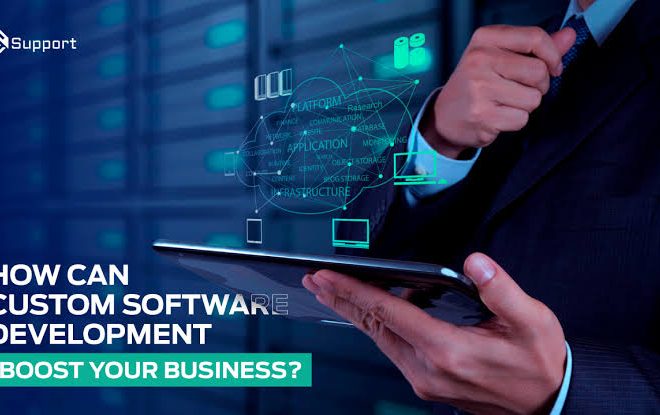
Teltlk: Unveiling the Latest Trends and Insights in Technology and Communication 2024
Introduction to Teltlk
Welcome to Teltlk, your ultimate guide to the latest trends and insights in technology and communication! In this fast-paced world, where innovation is the name of the game, staying ahead of the curve is crucial for individuals and businesses alike. Whether you’re a tech enthusiast or an industry professional looking for valuable information, you’ve come to the right place.
Technology has come a long way since its inception, revolutionizing how we communicate with each other and transforming entire industries. From the advent of telephones to the rise of smartphones, from dial-up internet connections to lightning-fast broadband speeds – every advancement has shaped our lives in ways we could have never imagined.
As we step into 2024, it’s time to explore what lies on the horizon. The coming years promise even more exciting developments that will reshape our digital landscape. So buckle up as we take a deep dive into some emerging trends that are set to dominate in 2024!
But it doesn’t stop there – these advancements aren’t limited to just one sector. They have far-reaching implications across various industries like healthcare, retail, finance, and more. We’ll uncover how these technologies will impact different sectors and what opportunities they bring for businesses.
However, with great progress comes great challenges. As cutting-edge technologies become mainstream, businesses must navigate through potential hurdles while capitalizing on new opportunities. We’ll discuss some key challenges faced by organizations in embracing these innovations.
Moreover, government regulations play a pivotal role in shaping technological advancements and ensuring their responsible use. We’ll delve into how governments worldwide are stepping up their efforts in regulating this rapidly evolving landscape.
So whether you’re curious about artificial intelligence (AI), excited about virtual reality (VR) experiences or intrigued by blockchain technology – get ready for an exhilarating journey through Teltlk exploration of future possibilities! Let’s unveil together what awaits us in 2024 and beyond!
The Evolution of Technology and Communication
Technology and communication have come a long way over the years, transforming our lives in ways we never thought possible. From the days of telegrams to today’s instant messaging apps, the evolution has been astounding.
In the early days, communication was limited by physical distance and time constraints. People relied on letters or messengers to convey their messages, which could take days or even weeks to reach their intended recipients. But with advancements in technology, this all changed.
The invention of the telephone revolutionized communication by allowing people to talk to each other in real-time, regardless of their location. This breakthrough paved the way for further innovation and laid the foundation for what was to come.
As technology continued its rapid advancement, so did communication methods. The internet became widely accessible, enabling people to connect with each other through emails and chat rooms. It opened up a whole new world of possibilities for businesses and individuals alike.
With the advent of smartphones came an era where communication transcended boundaries like never before. Now we can send texts, make video calls, share photos instantly – all from our handheld devices! Social media platforms emerged as powerful tools that connected us globally.
Today, technology continues its march forward with lightning speed. We now live in an age dominated by artificial intelligence (AI), internet of things (IoT), virtual reality (VR), augmented reality (AR), blockchain technology – all contributing towards creating more seamless and efficient modes of communication.
The future holds unlimited potential for technological innovation in how we communicate. As these technologies continue evolving at breakneck speed, it is crucial for individuals and businesses alike to stay abreast with these trends if they want to thrive in this ever-changing landscape.
So buckle up because Teltlk is here not only bringing you insights into these emerging trends but also helping you navigate your way through them successfully!
Emerging Trends in 2024:
Artificial Intelligence (AI) is one of the most exciting advancements in technology and communication, and its impact will only continue to grow in 2024. AI has the ability to revolutionize various industries by automating tasks, analyzing data, and making predictions with incredible accuracy. From virtual assistants that can understand natural language to autonomous vehicles that can navigate roads safely, AI is transforming the way we live and work.
Another trend we can expect to see more of in 2024 is the Internet of Things (IoT). The IoT refers to a network of interconnected devices that collect and share data. This technology allows for seamless communication between devices, enabling us to control our homes remotely or track our health using wearable devices. With advancements in connectivity and miniaturization, the possibilities for IoT applications are endless.
Virtual reality (VR) and augmented reality (AR) are also poised for significant growth in 2024. VR immerses users into a simulated environment, while AR overlays digital information onto the real world. These technologies have already made waves in gaming and entertainment but have immense potential across various sectors such as education, training simulations, architecture visualization, and even healthcare.
Blockchain technology has gained attention due to its role as the underlying infrastructure behind cryptocurrencies like Bitcoin. However, its potential extends far beyond just financial transactions. In 2024, we can expect blockchain adoption to increase across industries due to its secure nature for storing sensitive information like medical records or supply chain tracking.
These emerging trends hold tremendous promise not only for individuals but also for businesses across different sectors.
(Word count: 247 words)
A. Artificial Intelligence
Artificial Intelligence (AI) has become one of the most exciting and transformative technologies in recent years. It encompasses various applications that enable machines to simulate human-like intelligence and perform tasks with accuracy and efficiency. AI is not just a concept confined to science fiction movies anymore; it is now an integral part of our daily lives.
In 2024, we can expect AI to continue its rapid development, ushering in new possibilities across industries. One area where AI will have a significant impact is healthcare. With advanced algorithms and machine learning capabilities, AI can assist doctors in diagnosing diseases more accurately and efficiently. It can also help researchers analyze vast amounts of data to discover new treatments or predict outbreaks.
Retail is another sector that will benefit from the advancements in AI technology. Personalized shopping experiences are already becoming commonplace, thanks to AI-powered recommendation systems. In 2024, we can anticipate even more sophisticated solutions that leverage customer data to offer tailored product suggestions and enhance customer satisfaction.
The finance industry will also see significant improvements through the integration of AI. Fraud detection systems powered by machine learning algorithms can identify suspicious transactions quickly, ensuring enhanced security for financial institutions and their customers. Additionally, chatbots equipped with natural language processing abilities will provide better customer service by addressing queries promptly.
As promising as these developments may sound, there are challenges associated with implementing AI on such a large scale. Data privacy concerns need to be addressed adequately so that individuals feel comfortable sharing their information with intelligent machines. Ethical considerations must also be taken into account when designing autonomous systems capable of making decisions based on learned patterns.
Nonetheless, the opportunities presented by artificial intelligence in 2024 are immense – from revolutionizing healthcare delivery to enhancing personalized shopping experiences and streamlining financial services – businesses should embrace this technology’s potential today rather than being left behind tomorrow.
B. Internet of Things (IoT)
Internet of Things (IoT) has become an integral part of our daily lives, revolutionizing the way we interact with technology. In 2024, IoT is expected to reach new heights and bring about significant changes in various industries.
One major trend that will emerge is the integration of IoT devices into smart homes. Imagine a home where you can control everything from lighting to temperature using your smartphone or voice commands. This level of automation not only enhances convenience but also improves energy efficiency.
In the healthcare industry, IoT will play a crucial role in remote patient monitoring and telemedicine. Patients will be able to wear connected devices that track their vital signs and transmit real-time data to healthcare providers. This enables timely interventions and reduces hospital visits for routine check-ups.
Retail businesses are also set to benefit from IoT advancements. Smart shelves equipped with sensors can automatically monitor inventory levels and reorder products when they run low. Additionally, personalized shopping experiences through beacon technology will become more prevalent, offering tailored recommendations based on individual preferences.
Financial institutions are leveraging IoT to enhance security measures. Biometric authentication systems integrated with wearable devices provide an extra layer of protection against fraudsters. Furthermore, predictive analytics powered by IoT data can help detect fraudulent activities before they occur.
The challenges faced by businesses in adopting IoT include concerns over data privacy and security breaches. As more devices become interconnected, ensuring the protection of sensitive information becomes paramount.
However, these challenges present opportunities for companies specializing in cybersecurity solutions for IoT networks. With increased demand for secure connectivity among various devices, there is immense potential for growth in this sector.
Governments must also play a crucial role in shaping regulations surrounding the use of IoT technologies. Striking a balance between innovation and protecting consumer rights is essential to foster trust among users and ensure responsible deployment of these technologies.
In conclusion (as per instruction), Internet of Things (IoT) holds great promise as it continues to transform our world across industries such as healthcare, retail, and finance. With its potential to improve efficiency, enhance user
C. Virtual and Augmented Reality

Virtual and augmented reality (VR/AR) is a rapidly evolving technology that has the potential to revolutionize various industries. In 2024, we can expect to see significant advancements in VR/AR applications and devices.
In the realm of entertainment, VR/AR will provide immersive experiences for gamers, allowing them to step into virtual worlds like never before. Imagine playing your favorite video game and feeling like you’re actually inside the game itself!
But it’s not just gaming that will benefit from this technology. VR/AR will also have a profound impact on education, enabling students to explore historical events or dive deep into scientific concepts through interactive simulations. This hands-on approach to learning will undoubtedly enhance comprehension and engagement among learners of all ages.
Moreover, VR/AR holds great potential in the field of architecture and design. Architects can create virtual models of buildings, allowing clients to take virtual tours before construction even begins. This not only improves communication between architects and clients but also helps identify any design flaws or modifications needed early on.
Healthcare is another sector that stands to gain from VR/AR advancements. Surgeons can use AR overlays during complex procedures, providing real-time guidance and enhancing precision. Additionally, patients suffering from mental health conditions such as phobias or PTSD can undergo exposure therapy in a controlled environment using VR.
As technology continues its rapid march forward, we expect VR/AR innovations to become increasingly integrated into our daily lives – transforming how we work, learn, play, and interact with one another.
D. Blockchain Technology
Blockchain technology has been making waves in recent years, revolutionizing the way we store and transfer data. But what exactly is blockchain? Well, in simple terms, it’s a decentralized digital ledger that records transactions across multiple computers. This means that information stored on a blockchain is transparent, secure, and cannot be altered without consensus from the network.
One of the key benefits of blockchain technology is its ability to eliminate intermediaries. Traditional systems often rely on middlemen such as banks or lawyers to facilitate transactions. However, with blockchain, these intermediaries are rendered unnecessary as trust is built into the system itself.
Another exciting aspect of blockchain technology is its potential to disrupt industries beyond finance. While cryptocurrencies like Bitcoin brought attention to this technology initially, it has since expanded into areas such as supply chain management, healthcare record-keeping, and even voting systems.
With increased adoption of blockchain comes enhanced security and transparency for businesses and consumers alike. Transactions on a blockchain are recorded permanently and cannot be tampered with easily due to the decentralized nature of the network.
However, like any emerging technology, there are challenges associated with implementing blockchain on a large scale. Scalability remains an issue as blockchains become more crowded with increasing numbers of transactions. Additionally, regulatory frameworks need to catch up with this rapidly evolving field in order for widespread adoption to occur smoothly.
In conclusion (not concluding), Blockchain technology holds immense potential for transforming various industries by providing enhanced security and efficiency while eliminating intermediaries. As it continues to evolve over time (without summarizing), we can expect even greater innovation driven by this revolutionary technology!
Impact on Various Industries:
Healthcare:
The integration of Teltlk technology in the healthcare industry is revolutionizing patient care. With AI-powered tools and IoT devices, doctors can remotely monitor patients’ vital signs and provide real-time feedback. This not only improves efficiency but also enhances patient outcomes. Additionally, blockchain technology ensures secure medical records and enables easy sharing of information between healthcare providers.
Retail:
The retail sector has witnessed a significant transformation with the adoption of Teltlk advancements. AI-driven chatbots assist customers in finding products, virtual reality allows shoppers to try items before purchasing them online, and IoT devices optimize inventory management. These technologies create personalized shopping experiences, increase sales conversion rates, and streamline supply chain operations.
Finance:
Teltlk innovations have disrupted the financial industry by enhancing security measures and improving customer experience. Blockchain technology ensures transparent transactions while safeguarding sensitive data from cyber threats. AI algorithms analyze vast amounts of financial data for risk assessment and fraud detection, enabling more accurate predictions for investment decisions.
Each industry’s unique challenges require tailored solutions that leverage Teltlk’s capabilities to drive growth and innovation.
A. Healthcare
Healthcare is one of the industries that has been significantly impacted by technological advancements. With the rise of Teltlk, we can expect even more transformative changes in the healthcare sector by 2024.
One major trend in healthcare is the use of artificial intelligence (AI) to improve patient care and outcomes. AI-powered algorithms can analyze vast amounts of medical data to assist in diagnosis, treatment planning, and personalized medicine. This can lead to more accurate diagnoses and better treatment options for patients.
Another emerging trend is the integration of IoT devices into healthcare systems. These devices can monitor patients remotely, collect real-time data, and alert healthcare providers when intervention is needed. This allows for early detection of health issues and proactive management, ultimately improving patient outcomes.
Virtual and augmented reality (VR/AR) technology also holds promise in healthcare. VR/AR tools can be used for surgical training simulations, pain management during procedures or treatments, and even therapy for mental health conditions. Such immersive experiences have the potential to revolutionize medical education and patient care.
Blockchain technology has also gained attention in healthcare due to its ability to securely store and share sensitive medical information. Patients’ electronic health records could be stored on a blockchain network, ensuring privacy while allowing authorized parties access when necessary.
The impact of these trends on the healthcare industry cannot be underestimated. Improved diagnosis accuracy through AI algorithms means faster treatment plans tailored specifically to each patient’s needs leading to better outcomes overall.
Remote monitoring through IoT devices enables early detection which results potentially reduced ER visits or hospital admissions.
VR/AR applications enhance training efficiency among medical professionals who need high-quality hands-on experience before they perform surgeries themselves.
Blockchain technology ensures security with regards handling sensitive personal information like electronic health records providing peace-of-mind knowing their data is safe yet accessible if ever required by authorized personnel only
B. Retail
The retail industry has undergone significant transformations in recent years, and the year 2024 is poised to bring even more exciting advancements. With the rapid evolution of technology and communication, retailers are finding innovative ways to enhance customer experiences and streamline their operations.
One of the emerging trends in retail is the integration of artificial intelligence (AI). AI-powered chatbots can provide personalized recommendations to customers based on their preferences and purchase history. This not only improves customer satisfaction but also helps retailers understand consumer behavior better.
Another trend that is gaining momentum is the use of Internet of Things (IoT) devices in retail stores. Retailers can leverage IoT sensors to track inventory levels in real-time, ensuring that popular products are always available on shelves. Additionally, smart shelves equipped with RFID tags enable automated checkout processes, reducing waiting times for customers.
Virtual and augmented reality (VR/AR) technologies are also making waves in the retail sector. These immersive technologies allow customers to visualize products before making a purchase decision. For example, furniture retailers can offer virtual tours of homes where customers can place virtual furniture items to see how they would look in a specific space.
Blockchain technology is another area that holds great potential for the future of retail. It enables secure transactions by creating a decentralized network where all parties involved have access to transparent records. This not only enhances security but also allows for greater supply chain visibility, reducing counterfeit goods and improving trust between retailers and consumers.
The future of retail looks promising thanks to these emerging trends in technology and communication. As we move towards 2024, it’s essential for retailers to embrace these advancements and adapt their strategies accordingly. By leveraging AI, IoT devices, VR/AR technologies,and blockchain solutions,rRetailers can create seamless shopping experiences while staying ahead of their competition
C. Finance
The finance industry is no stranger to technological advancements, and in the world of Teltlk, it’s no different. As we look ahead to 2024, there are several emerging trends that will reshape how we manage our finances.
One of the most significant trends is the integration of blockchain technology into financial systems. Blockchain offers a decentralized and secure way to record transactions, reducing the need for intermediaries and increasing transparency. This technology has enormous potential for streamlining processes such as cross-border payments, supply chain financing, and even identity verification.
Another key trend is the rise of digital currencies. Cryptocurrencies like Bitcoin have gained traction in recent years, but with further developments expected in Teltlk by 2024, we can anticipate more widespread adoption of these alternative forms of payment. Central banks around the world are also exploring the concept of central bank digital currencies (CBDCs), which could revolutionize how money is issued and managed.
In addition to blockchain and digital currencies, AI-powered financial services are set to become increasingly prevalent in 2024. From chatbots that handle customer inquiries to robo-advisors that provide personalized investment advice based on algorithms, AI has applications throughout various aspects of finance.
Furthermore, with Teltlk’s advancements in connectivity through IoT devices comes a wealth of data that can be utilized for better risk assessment and fraud detection within financial institutions. These smart devices can collect real-time information about consumer behavior and spending patterns, enabling companies to offer tailored products and services while mitigating risks.
However exciting these trends may be for businesses operating in finance sectors like banking or insurance companies face challenges as well including cybersecurity threats increased competition from fintech startups regulatory hurdles regarding data privacy compliance costs associated with implementing new technologies etc..
Despite these challenges though there are numerous opportunities available too especially if you’re willing take advantage them proactively rather than waiting until they forced upon your business innovation will be crucial staying ahead curve keeping pace with industry developments embracing change rather than resisting it can help
Challenges and Opportunities for Businesses

In the rapidly evolving landscape of technology and communication, businesses face both challenges and opportunities. Let’s take a closer look at what lies ahead.
One of the biggest challenges for businesses is keeping up with the pace of change. As new technologies emerge, companies must adapt quickly or risk being left behind. This requires constant learning and a willingness to embrace innovation.
Another challenge is cybersecurity. With advancements in technology comes an increased risk of cyber threats. Businesses need to invest in robust security measures to protect their sensitive data from breaches and attacks.
Furthermore, businesses also face the challenge of integrating new technologies into their existing infrastructure. This can be a complex process that requires careful planning and execution.
However, amidst these challenges, there are numerous opportunities for businesses to thrive in this digital era. For instance, artificial intelligence (AI) can help automate processes, improve efficiency, and enhance customer experiences.
Moreover, the Internet of Things (IoT) enables businesses to gather valuable data that can inform decision-making and drive innovation. By leveraging IoT devices, companies can gain insights into consumer behavior patterns and make more informed business decisions.
Virtual reality (VR) and augmented reality (AR) present exciting opportunities as well. These technologies have the potential to revolutionize marketing strategies by creating immersive experiences for customers.
Additionally, blockchain technology offers secure transactions that could streamline operations across various industries such as finance or supply chain management.
As we move forward into 2024 and beyond, it is crucial for businesses to recognize these trends not only as challenges but also as opportunities waiting to be seized upon. By embracing technological advancements while addressing associated risks head-on through strategic planning and investing in talent development teams – organizations will position themselves at an advantage over competitors who fail adapting promptly enough during this transformative period ahead
The Role of Government and Regulations in Teltlk
As technology continues to advance at a rapid pace, the role of government and regulations becomes crucial in ensuring that these innovations are implemented safely and ethically. In the realm of Teltlk – where technology and communication converge – it is no different.
Governments around the world play a vital role in shaping the future of Teltlk by enacting policies that foster innovation while also safeguarding consumer rights and privacy. As technologies like Artificial Intelligence (AI), Internet of Things (IoT), Virtual Reality (VR) and Augmented Reality (AR), as well as Blockchain, become more prevalent, governments must adapt their regulatory frameworks to keep up with these advancements.
One area where government regulations have a significant impact is data privacy. With increased connectivity through IoT devices, there is a growing concern about how personal information is collected, stored, and used. Governments need to establish robust data protection laws that ensure individuals’ privacy rights are respected while allowing for technological progress.
Moreover, as AI becomes integrated into various aspects of our lives – from healthcare diagnostics to autonomous vehicles – governments should address concerns regarding ethics and accountability. Establishing guidelines for responsible AI development will help mitigate risks such as biased algorithms or automated decision-making without human oversight.
Furthermore, blockchain technology holds immense potential beyond cryptocurrencies. Its decentralized nature can revolutionize areas like supply chain management, voting systems, financial transactions, and more. To unlock this potential fully while preventing misuse or fraudulence within blockchain networks requires thoughtful regulation from governing bodies worldwide.
While some may argue that excessive regulation stifles innovation or slows down progress in emerging technologies like Teltlk’s trends we discussed earlier; it is essential to strike a balance between promoting growth and protecting public interests effectively.
Teltlk represents an exciting future where advanced technologies intersect with effective communication strategies. From AI-powered chatbots enhancing customer experiences to smart devices seamlessly connecting us across platforms, the possibilities are endless. see more.



